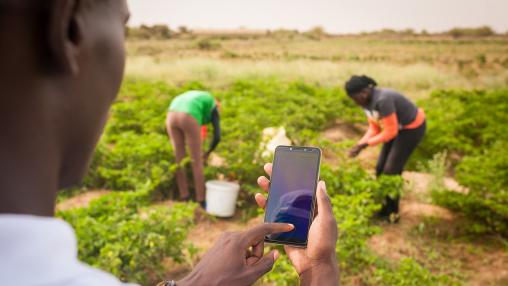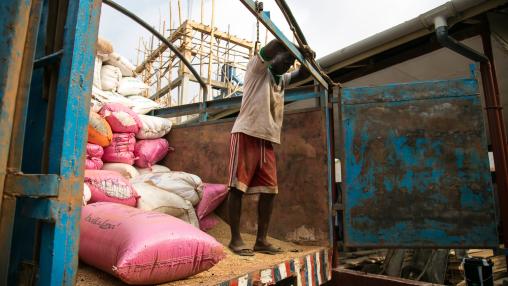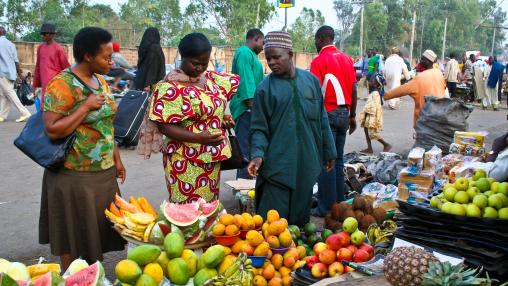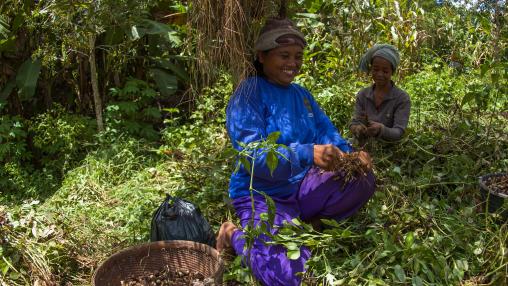
Agricultural Cooperatives Could Hold Key to Increasing Resilience to Shocks
Strong agricultural cooperatives could be a powerful pathway to protect vulnerable populations from food insecurity caused by shocks like the COVID-19 pandemic, according to a recent paper in Agriculture & Food Security.

A new rapid assessment tool for food security risks posed by global price shocks
International food commodity prices have experienced a series of shocks over the past decade. The prices of rice, maize, and wheat spiked in 2007-08 as a result of supply shocks, demand for biofuels, and export trade restrictions. Commodity prices increased again in 2010-11. And most recently, global supply chain disruptions in the aftermath of the COVID-19 pandemic and Russia’s invasion of Ukraine sent international food and fertilizer prices soaring, though they have moderated somewhat after peaking in mid-2022.
The E-FooD dataset and Food Security Simulators for Kenya and Nigeria: Innovative Tools to Support National Policies and Strategies
Recent global food price spikes and household income losses pose significant challenges to people’s food security and diets, raising important questions for governments and international organizations about how best to support households. The new Income and Price Elasticities of Food Demand (E-FooD) dataset [https://doi.org/10.7910/DVN/OXZ0H6] and Food Security Simulators (FSS) provide rigorous, yet easy-to-use tools for forward-looking evaluations of direct, household-level outcomes of economic crisis and policy responses.
Implications of El Niño 2023/24 for Africa South of the Sahara
Climate scientists are anticipating an El Niño event in the upcoming boreal winter season (November 2023–February 2024), ending the recent three-year La Niña. In collaboration with USAID FEWS NET and NASA’s Goddard Space Flight Center, IFPRI is hosting a presentation on the potential impact of the upcoming El Niño on the global agrifood system, with special emphasis on low-income countries in sub-Saharan Africa. The event will be organized around four short talks.

Launch of the Nigeria Food Security Simulator
The CGIAR Initiative on National Policies and Strategies Nigeria has released the new Nigeria Food Security Simulator. This Excel-based tool allows users to estimate short-term impacts of household-level income or food price shocks and related policy decisions on diets and food security in the country.

End of the Black Sea Grain Initiative: Implications for sub-Saharan Africa
Russia’s July 17 withdrawal from the Black Sea Grain Initiative (BSGI), has sparked fears of reduced exports of wheat and other key commodities to developing countries, along with other market disruptions.

Climate-Smart Agriculture in West Africa
The challenges of climate change and food security are closely intertwined, with agriculture both driving and being impacted by extreme weather events. Policymakers around the globe are faced with the need to increase food production to feed growing populations while reducing that production’s negative impacts on the environment. According to a recent article in Global Environmental Change, climate-smart agriculture (CSA) provides an effective way to enhance countries’ climate resilience while simultaneously ensuring food and nutrition security.
Nutrition-Sensitive Irrigation in Mali: Guidance for Progress on Water, Food, and Nutrition Security
Irrigation contributes to agricultural intensification and farm profitability, helps farm households extend the growing season, and is increasingly important for farmers' resilience to climate shocks and stressors. Until recently, less attention was paid to the other benefits of irrigation, including improvements in household food security and nutrition, health, and women's empowerment.
Irregular Migration and Food Security: A View from West Africa
How does food insecurity affect irregular migration, and what role can a needs-based humanitarian response play? A recent collaboration between IFPRI and the World Food Programme took a route-base approach to looking at irregular migration in West Africa—examining migrant origins, their transit experience, and the situation where their journey stalls or ends. The mixed method study includes case studies of the Ténéré desert crossing, across the south-central Sahara, for Malian and Libyan migrants.
Ukraine One Year Later: the impact of the war on agricultural markets and food security
One year after Russia invaded Ukraine, the war continues to affect global markets. World stock levels remain tight, and while prices have fallen back to pre-war levels, much uncertainty remains. This seminar will examine how the war has affected global markets, particularly wheat markets. Speakers will discuss the war’s impacts on Ukraine’s producers, wheat buyers and importers in the MENA region, and households in Egypt and Yemen. In addition, the discussion will address export restrictions and sanctions that have exacerbated price levels and volatility.